It seems to me that the information that betting so heavily on FTX and SBF was an avoidable failure. So what could we have done ex-ante to avoid it?
You have to suggest things we could have actually done with the information we had. Some examples of information we had:
First, the best counterargument:
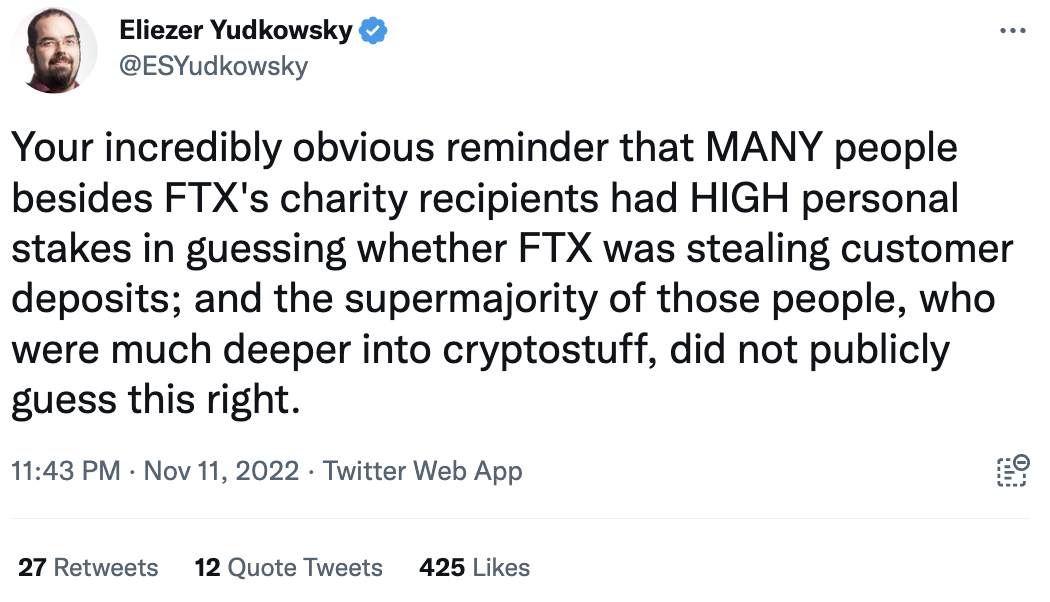
Then again, if we think we are better at spotting x-risks then these people maybe this should make us update towards being worse at predicting things.
Also I know there is a temptation to wait until the dust settles, but I don't think that's right. We are a community with useful information-gathering technology. We are capable of discussing here.
Things we knew at the time
We knew that about half of Alameda left at one time. I'm pretty sure many are EAs or know them and they would have had some sense of this.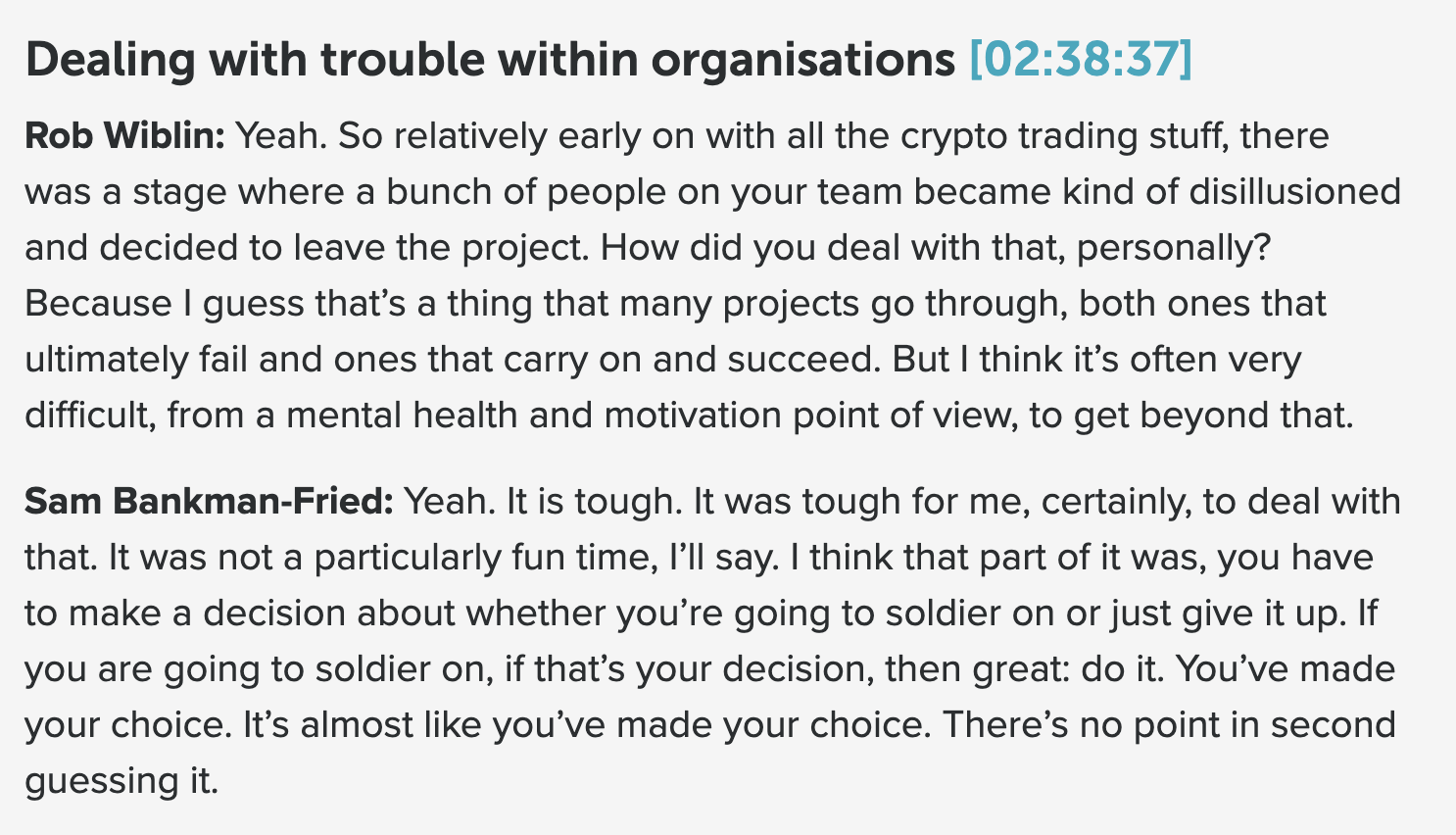
We knew that SBF's wealth was a very high proportion of effective altruism's total wealth. And we ought to have known that something that took him down would be catastrophic to us.
This was Charles Dillon's take, but he tweets behind a locked account and gave me permission to tweet it.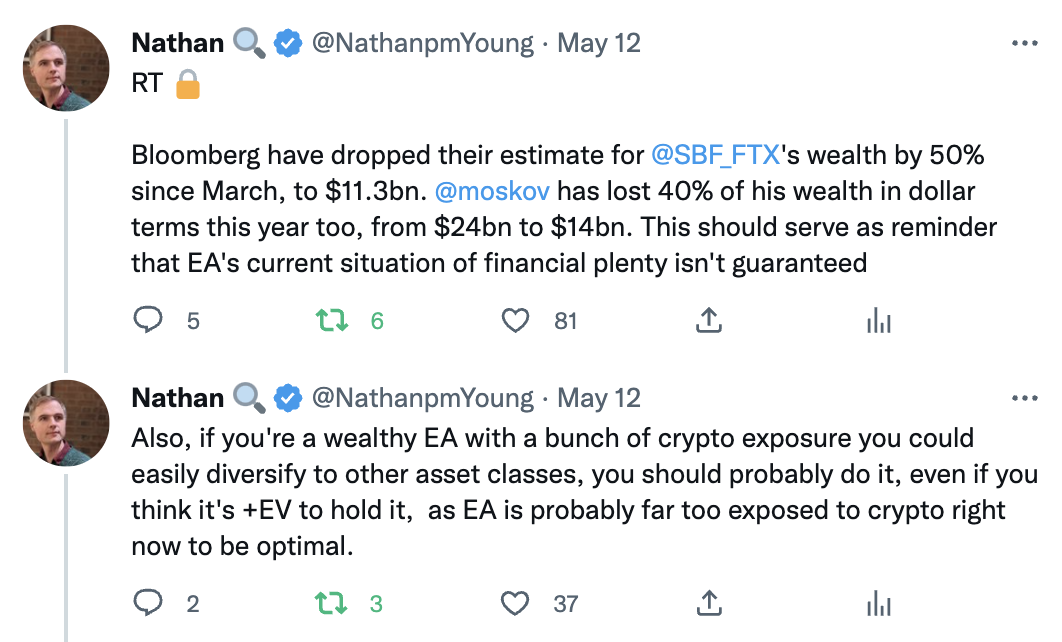
Peter Wildeford noted the possible reputational risk 6 months ago:
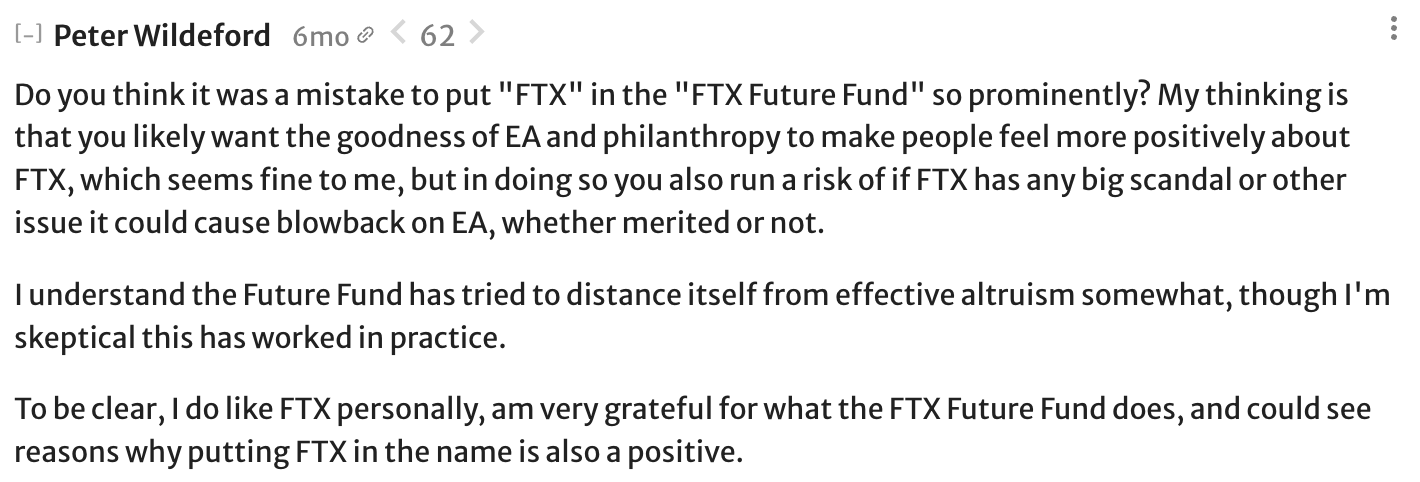
We knew that corruption is possible and that large institutions need to work hard to avoid being coopted by bad actors.
Many people found crypto distasteful or felt that crypto could have been a scam.
FTX's Chief Compliance Officer, Daniel S. Friedberg, had behaved fraudulently In the past. This from august 2021.
In 2013, an audio recording surfaced that made mincemeat of UB’s original version of events. The recording of an early 2008 meeting with the principal cheater (Russ Hamilton) features Daniel S. Friedberg actively conspiring with the other principals in attendance to (a) publicly obfuscate the source of the cheating, (b) minimize the amount of restitution made to players, and (c) force shareholders to shoulder most of the bill.

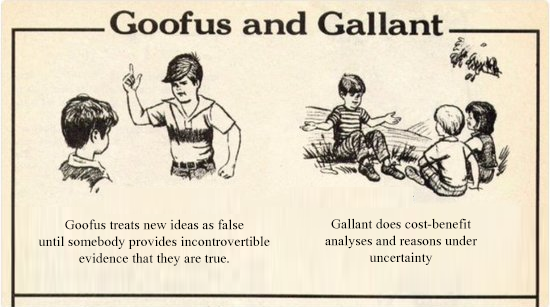
Right, I agree that it's good to drain his resources and turn them into good things. The problem is that right now, our model is "status is a voluntary transaction." In that model, when SBF, or in this example VP, donates, they are implicitly requesting status, which their recipients can choose to grant them or not.
I don't think grantees - even whole movements - necessarily have a choice in this matter. How would we have coordinated to avoid granting SBF status? Refused to have him on podcasts? But if he donates to EA, and a non-EA podcaster (maybe Tyler Cowen) asks him, SBF is free to talk about his connection and reasoning. Journalists can cover it however they see fit. People in EA, perhaps simply disagreeing, perhaps because they hope to curry favor with SBF, may self-interestedly grant status anyway. That wouldn't be very altruistic, but we should be seriously examining the degree to which self-interest motivates people to participate in EA right now.
So if we want to be able to accept donations from radioactive (or potentially radioactive) people, we need some story to explain how that avoids granting them status in ways that are out of our control. How do we avoid journalists, podcasters, a fraction of the EA community, and the donor themselves from constructing a narrative of the donor as a high-status EA figure?